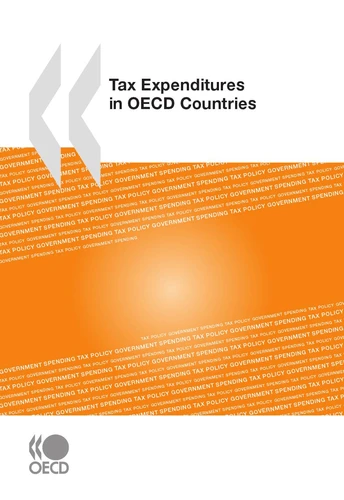Tax Expenditures in OECD Countries
Par :Formats :
Disponible dans votre compte client Decitre ou Furet du Nord dès validation de votre commande. Le format Multi-format est :
- Pour les liseuses autres que Vivlio, vous devez utiliser le logiciel Adobe Digital Edition. Non compatible avec la lecture sur les liseuses Kindle, Remarkable et Sony
 , qui est-ce ?
, qui est-ce ?Notre partenaire de plateforme de lecture numérique où vous retrouverez l'ensemble de vos ebooks gratuitement
Pour en savoir plus sur nos ebooks, consultez notre aide en ligne ici
- Nombre de pages242
- FormatMulti-format
- ISBN978-92-64-07690-7
- EAN9789264076907
- Date de parution05/01/2010
- Protection num.NC
- Infos supplémentairesMulti-format incluant PDF avec W...
- ÉditeurOECD
Résumé
In all OECD countries, governments collect revenues through taxes and redistribute this public money, often by obligatory spending on social programmes such as education or health care. Their tax systems usually include "tax expenditures"- provisions that allow certain groups of people, such as small businessmen, retired people or working mothers, or those who have undertaken certain activities, such as charitable donations, to pay less in taxes.
The use of tax expenditures by governments is pervasive and growing.
At a time when many government budgets are threatened by population ageing and adverse cyclical developments, there is a pressing need to avoid inefficient government programmes, some of which may utilise tax expenditures. This book sheds light on the use of tax expenditures, mainly through a study of ten OECD countries: Canada, France, Germany, Japan, Korea, Netherlands, Spain, Sweden, the United Kingdom and the United States.
This book will help government officials and the public better understand some of the technical and policy issues behind the use of tax expenditures. It highlights key trends and successful practices, and addresses a broad range of government finance issues, including tax policy making, tax and budget efficiency, fiscal responsibility and rule making.
At a time when many government budgets are threatened by population ageing and adverse cyclical developments, there is a pressing need to avoid inefficient government programmes, some of which may utilise tax expenditures. This book sheds light on the use of tax expenditures, mainly through a study of ten OECD countries: Canada, France, Germany, Japan, Korea, Netherlands, Spain, Sweden, the United Kingdom and the United States.
This book will help government officials and the public better understand some of the technical and policy issues behind the use of tax expenditures. It highlights key trends and successful practices, and addresses a broad range of government finance issues, including tax policy making, tax and budget efficiency, fiscal responsibility and rule making.
In all OECD countries, governments collect revenues through taxes and redistribute this public money, often by obligatory spending on social programmes such as education or health care. Their tax systems usually include "tax expenditures"- provisions that allow certain groups of people, such as small businessmen, retired people or working mothers, or those who have undertaken certain activities, such as charitable donations, to pay less in taxes.
The use of tax expenditures by governments is pervasive and growing.
At a time when many government budgets are threatened by population ageing and adverse cyclical developments, there is a pressing need to avoid inefficient government programmes, some of which may utilise tax expenditures. This book sheds light on the use of tax expenditures, mainly through a study of ten OECD countries: Canada, France, Germany, Japan, Korea, Netherlands, Spain, Sweden, the United Kingdom and the United States.
This book will help government officials and the public better understand some of the technical and policy issues behind the use of tax expenditures. It highlights key trends and successful practices, and addresses a broad range of government finance issues, including tax policy making, tax and budget efficiency, fiscal responsibility and rule making.
At a time when many government budgets are threatened by population ageing and adverse cyclical developments, there is a pressing need to avoid inefficient government programmes, some of which may utilise tax expenditures. This book sheds light on the use of tax expenditures, mainly through a study of ten OECD countries: Canada, France, Germany, Japan, Korea, Netherlands, Spain, Sweden, the United Kingdom and the United States.
This book will help government officials and the public better understand some of the technical and policy issues behind the use of tax expenditures. It highlights key trends and successful practices, and addresses a broad range of government finance issues, including tax policy making, tax and budget efficiency, fiscal responsibility and rule making.


















